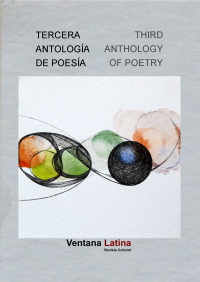Ten questions with Cristóbal Olivares
Translated by Ellen Donnison

Cristóbal Olivares/VII mentor program. Yara peinandole el cabello a Karen en su casa. Santiago, Chile. 2011
This August we had the good fortune to interview Chilean photographer, Cristóbal Olivares who, in June, began to be represented by the renowned photographic agency, the VII Photo/Mentor Program. During 2014 Olivares was, for the second time, nominated for the Joop Swart Masterclass (2014), organised by World Press Photo. Furthermore, Olivares also received the honourable prize and second place in the category, Photo Essay, for Mexico’s Photofest Querétaro, 2014.
Cristóbal Olivares (born in1988) is an independent photographer who works towards the photographic essay with a focus on contemporary social themes. His first book, -42º, was published in 2013 by Ediciones La Visita (Chile). Olivares is also the co-founder of Buen Lugar Publications, an independent initiative that promotes and manages the publication of photographic books in Santiago, Chile.
During his career Olivares’ work has achieved wide recognition, for example, first prize in the National Exhibition of Press Photography, Chile (2013), Honourable Mention at the New Generation Prize by the Photographic Museum of Humanity, and Honourable Mention by FotoVisura. He has also been nominated for Young Photographer of the Year for the Rodrigo Rojas Denegri Prize, Santiago, Chile, and shortlisted for the Ian Parry Scholarship, UK (2012).
His work has been widely published and exhibited and has won awards in Chile, Argentina, Colombia, Mexico, the USA, Canada, Spain, the United Kingdom and Germany.
Cristóbal currently lives in Chile.
Ventana Latina: 1. Tell us how you became a photographer.
Cristóbal Olivares: When I was a child we always had a family camera in the house. In those days our camera took a 35mm film and its use was limited to family events. However, my brother and I used to steal it and take photos of our friends and dogs. My grandfather was also a very good amateur photographer and I was always interested in any disciplines linked to photography in any way such as drawing, painting, music and sport. When I decided to go to university I chose to study photography but I became bored with the classes and decided to go travelling for a while.
VL: 2. Which theme have you developed most in your photographic work?
CO: That has always changed; I don’t get caught up in solely concentrating on developing one theme. It depends on what interests me at the time. In general it’s life itself that makes me want to take photographs. Recently I have been interested in stories that discuss what happens to us in society today. Discovering the same things have happened to me as they have in these stories (ones born out of an interest in journalism) I try to understand them and tell them from a totally subjective and personal point of view. I’m not trying to report anything.
VL: 3. How did your work A-MOR: Femicide Stories come into being?
CO: Fundamentally it came about through the process that I briefly touched on earlier. In this instance it was in a very simple manner: through watching the news. During that week there were many femicides in Chile. Of course I already knew that this was occurring but it coincided with my return to Chile from Canada. I felt driven to make a project here and that wave of femicide cases pushed me into deciding that I wanted to get closer to this theme; the work took a little over two years to make.
VL: 4. Which did you first use in your work: colour or black and white photography?
CO: At university I had classes in digital and analogue laboratories, therefore I was able to work with both. For me the decision depends on the theme; I don’t feel tied to one more than the other. The same goes for the format, even though I work a lot with 120mm film.
VL: 5. What was it like working on your project, In Karen’s Name?
CO: Intense, like any theme based in reality, but particularly because it’s about someone very close to me. It took many years and I learnt a lot working on this project, which I return to sometimes, but not always to make photos.
VL: 6. Where does most of your photographic work take place?
CO: I have photographed in North America and South America. Ultimately I am most interested in what happens in Chile.
VL: 7. What inspires you about Latin America?
CO: Mainly being part of it, part of this cultural mix that changes day to day. Anything else is an addition.
VL: 8. How did your book -42°come about?
CO: The book owes its existence to the photographer Elde Gelos who founded Ediciones La Visita. He was the one who invited me to publish the work I did in Canada, where the lowest temperature reached was -42º, during the time I lived there. For several months we were editing and giving form to the book, which was part of a collection. It was a great experience of course; one in which friendships were born and a great deal was learnt. It’s this initiative which inspired me to create Buen Lugar Ediciones alongside my brother Alejandro, who is also a photographer.

Cristóbal Olivares/VII mentor program. Estudiantes protestan en Chile por un cambio en el sistema educacional. Santiago, Chile. 2011.
VL: 9. What defines a good photo for you?
CO: One that generates questions and no answers.
VL: 10. Are you currently working on a new project?
CO: Since June I have been part of the Mentor Program at Agency VII. I’m finishing my project A-mor with the help of Christopher Morris who is my mentor within the agency. At the same time I’m looking into a couple of possible projects, as well as working on the editorial with which we just launched the book, Living Peripheries by Alejandro Olivares.
Libro -42º
To learn more about Cristóbal Olivares’ work, click here.








 Copyright © 2024
Copyright © 2024